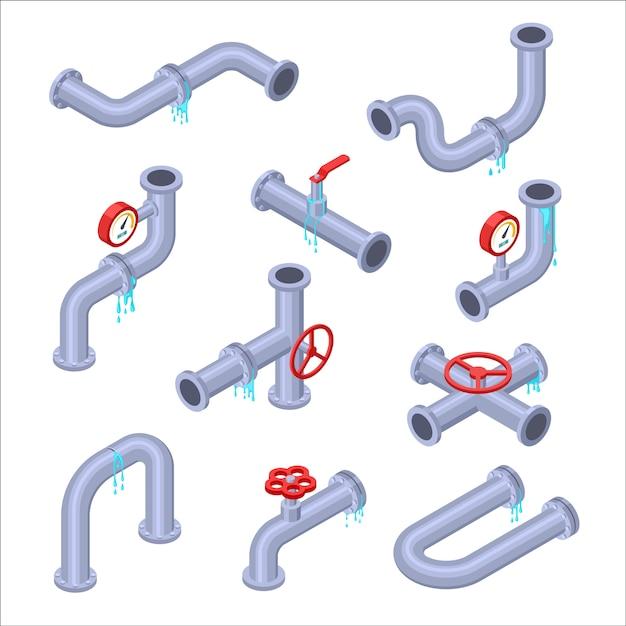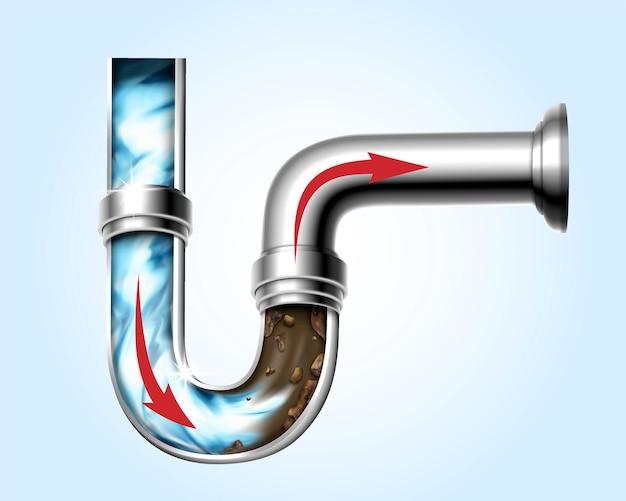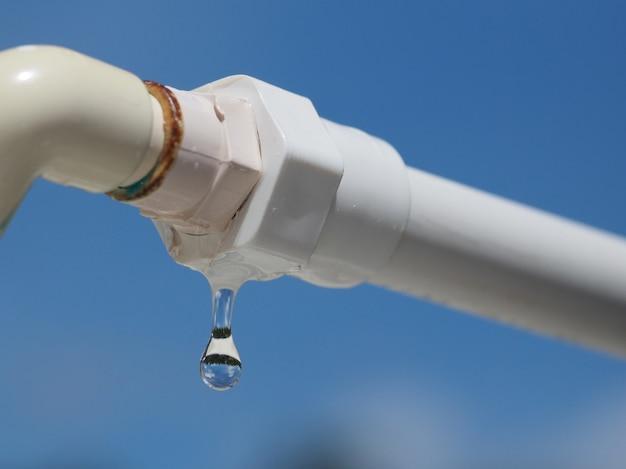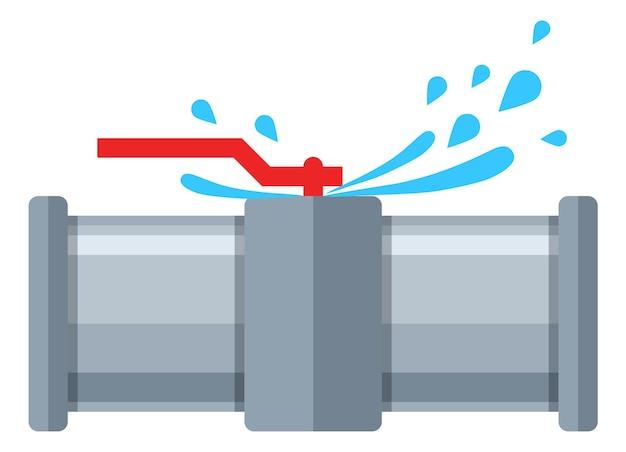As a pool owner, you rely heavily on your pool heater to keep the water at the perfect temperature for your enjoyment. But what happens when you notice that your Hayward pool heater is leaking water?
A leaking pool heater can be a major cause of concern for many pool owners out there. Not only does it reduce the efficiency of the heater, but it can also be a safety hazard.
In this comprehensive guide, we’ll take a closer look at the causes of pool heater leaks, the signs of a leaking pool heater, and most importantly, how you can repair your Hayward pool heater so that you can get it back to its optimal performance.
We’ll also discuss some common pool heater problems, including why a pool heater overheats, heat exchanger leaks, gas valve troubleshooting, and how to tell if your pool heater is working.
If you’re dealing with a pool heater that’s running but not heating the water, or if you’re worried that your pool heat pump is dripping too much water, we’ve got you covered.
So sit back, grab a cold drink, and let’s dive into the world of Hayward pool heater leaking water and how to fix it!
Diagnosing and Fixing a Leaking Hayward Heater
Is your Hayward heater leaking water? Don’t panic. A leaking pool heater can be a common and fixable problem. Leaks can be caused by a variety of reasons, including worn-out seals, damaged pipes, or corroded heat exchangers. In this guide, we’ll show you how to diagnose and fix the problem.
Step 1: Turn off the Heater
Before inspecting your heater, turn off the pump and heater. Make sure the electricity is safely disconnected, and the gas is turned off if applicable.
Step 2: Inspect the Heater
Now it’s time to inspect the pool heater, visually checking for any leaks or damage. Start by checking the water pipe connections, valves, and unions. If you notice any water flowing from these areas, check that they are tightened correctly.
Step 3: Check the Heat Exchanger
The heat exchanger is an essential part of the pool heater where water is heated before re-entering the pool. If the heat exchanger is clogged or corroded, it can cause a leak. Check the heat exchanger for any visible cracks or corrosion if there’s any problem in the heater.
Step 4: Fix the Leak
If you diagnosed the problem area, it is fixed easily. In case if there is any fractured seal or pipe, that can be repaired, or you may have to replace the damaged part.
Hayward heater leaking water can be a nuisance, but it is a common problem that can be easily fixed. By following the steps mentioned above, you can diagnose and fix the leak yourself instead of spending money on a professional. However, if you feel it is above your skill level, don’t hesitate to call a professional.
Pool Heater Repair: Tips to Fix Your Hayward Heater
If your Hayward pool heater leaking water, don’t fret; there’s a good chance it can be repaired. Here are some tips to help you diagnose and fix your pool heater.
Check for Leaks
Before you start repairing your pool heater, check to see if there are any leaks. Leaks can be caused by a damaged heater plate, a loose hose clamp, or a crack in the pool heater. To check for leaks, turn off the pool heater, and inspect the unit thoroughly. If you find any leaks, mark them with a piece of tape or a marker.
Clean the Filter
The filter in your pool heater can get clogged with debris or mineral buildup. This buildup can prevent the heater from working correctly. To clean the filter, remove it from the system and rinse it with a hose. If there is a lot of buildup, you may need to soak it in a cleaning solution.
Check the Igniter
The igniter is a crucial component in your pool heater. If it’s not working correctly, it can prevent the heater from turning on. To check the igniter, turn on the pool heater and listen for a clicking sound. If you don’t hear the clicking sound, the igniter may need to be replaced.
Inspect the Thermostat
If your pool heater isn’t producing enough heat or is turning off too soon, the thermostat may be the issue. To check the thermostat, turn off the pool heater and inspect the temperature sensor. If the sensor is dirty or damaged, it may need to be cleaned or replaced.
Repairing a Hayward pool heater leaking water is not a difficult task. With a little attention and patience, you can fix most common problems that arise with your pool heater. Remember to follow safety guidelines when working on the heater and consult a professional if you’re unsure about any repairs. By properly maintaining your pool heater, you’ll extend its life, save money, and ensure that your pool is always the perfect temperature.
Why is My Pool Heater Overheating
If you have a pool heater and it overheats, there could be several reasons for this issue. Some of the common causes of pool heater overheating include:
1. Lack of Water Flow
One of the primary reasons why your pool heater is overheating is due to a lack of water flow. Without water flowing through the heater, the device will overheat, leading to damage or malfunction. Overheating can be caused by several factors such as clogged filters or blocked valves. One way to fix this issue is by regularly checking your pool pump and filter to ensure they are clean and functioning correctly.
2. Dirty Heat Exchanger
Another reason why your pool heater may be overheating is a dirty heat exchanger. A dirty heat exchanger can cause the heater to overheat and malfunction. When the heat exchanger becomes clogged with dirt, debris, or minerals, heat transfer is reduced, and overheating occurs. Regularly cleaning the heat exchanger is necessary to ensure that it functions efficiently.
3. Incorrect Water Chemistry
Incorrect water chemistry could also contribute to your pool heater overheating. High levels of calcium and dissolved minerals in the water can cause the heater to overheat and malfunction. To avoid this, you must regularly test the water chemistry and ensure that all chemical levels are within the recommended range.
4. Undersized Heater
A pool heater that is too small for your pool can lead to overheating and damage to the device. You must ensure that your heater is appropriately sized for your pool to avoid overheating.
In conclusion, understanding why your pool heater is overheating is crucial to fixing the issue and maintaining your pool. Regular maintenance, cleaning, and checking water chemistry are some of the ways to prevent overheating and damage to your pool heater. If you are unsure of how to go about fixing the issue, it is best to consult a professional to avoid further damage.
Pool Heater Heat Exchanger Leaking
If you’re using a pool heater, you might encounter a problem where the heat exchanger is leaking. A heat exchanger is an essential component of a pool heater, responsible for heating the water that goes through the pool filtration system. A faulty heat exchanger can cause water to leak from the pool heater and cause significant damages if not fixed in time.
Signs of a Leaking Pool Heater Heat Exchanger
It can be challenging to diagnose a leaking heat exchanger. However, there are common signs that you can look out for to know if your pool heater heat exchanger is leaking. These include:
- Water on the ground near the pool heater
- Reduced water pressure in the pool filtration system
- Increase in the gas or electricity bills
- Slow heating of pool water
If you notice any of these signs, it’s essential to call a professional service technician to diagnose and fix the problem.
Causes of a Leaking Pool Heater Heat Exchanger
A leaking heat exchanger can have various causes, such as:
- Corrosion due to chemical imbalances in the pool water
- Aging of the heat exchanger
- Physical damage to the heat exchanger
- Poor installation or maintenance practices
Regardless of the cause, it’s crucial to address the issue as soon as possible to prevent further damage to your pool and its surrounding areas.
Fixing a Leaking Pool Heater Heat Exchanger
Fixing a leaking pool heater heat exchanger requires the expertise of a professional. Attempting to fix the problem on your own can result in further damages and can also lead to personal injury.
A service technician will need to remove the heat exchanger from the pool heater and inspect it for corrosion or physical damage. If the heat exchanger is damaged, it will need to be replaced. In some cases, it may be more cost-effective to replace the entire pool heater.
A leaking pool heater heat exchanger can be a significant problem for pool owners. It’s essential to look out for common signs of a leaking heat exchanger and call a professional service technician for help. By fixing a leaking heat exchanger, you can ensure that your pool operates safely and smoothly, saving your time and money in the long run.
Troubleshooting Hayward Pool Heater Gas Valve
If your Hayward pool heater is leaking water, there’s a chance that the gas valve may be the cause of the problem. If that’s the case, the valve may need some troubleshooting to identify and fix the underlying issue. Here are some tips to help you troubleshoot your pool heater gas valve:
Check for Power Supply
The first thing you should do is check that the gas valve has a proper power supply. If there’s no power supply, the valve won’t operate no matter how many times you turn on the heater. You should also check for loose connections, blown fuses, or tripped circuit breakers. If you find any loose connections or blown fuses, you’ll need to adjust or replace them, respectively.
Check the Gas Supply
Another thing you should check is the gas supply. Problems with the gas supply can prevent the valve from working correctly. First, ensure that the gas supply is on and that the valve has a steady supply of gas. If everything seems alright with the gas supply, then examine the supply line to see if there are any leaks. If you find any leaks, you’ll need to repair them before continuing.
Inspect the Valve
If you’ve established that the power supply and gas supply are okay, then it’s time to inspect the gas valve itself for any visible damage. One of the most common problems with gas valves is dirt accumulation that can cause the valve to malfunction. If there’s dirt on the valve, clean it with a soft brush or cloth.
Check the Ignition System
Finally, you should check the ignition system, which helps the valve generate heat. Problems with the ignition system can prevent the valve from functioning normally. Check the igniter and burner assembly for any visible damage or dirt. If you find any damage, you’ll need to replace the defective part.
Troubleshooting a Hayward pool heater gas valve can be a daunting task, but with careful inspection and diagnosis, you can pinpoint the problem and fix it. Remember to take safety precautions when working with gas valves and heaters. If you’re unsure about anything, then hire a professional technician to come to your rescue. With that said, we hope this subsection has helped you understand how to troubleshoot a leaking Hayward pool heater gas valve.
How to Tell If Your Pool Heater is Working
If you’re the proud owner of a pool, you know how important it is to keep your pool heater working correctly. However, it’s not always easy to tell if your heater is functioning as it should. Here are some simple ways to check if your pool heater is working.
Check the Pilot Light
The first thing you should do is check the pilot light. If your pool heater has a pilot light, it should be burning constantly. If you see that the light has gone out, you’ll need to relight it.
Monitor the Temperature
Another way to tell if your pool heater is working is by checking the temperature of the water. If the temperature is constantly lower than what you have the thermostat set to, that could be a sign that your pool heater is not functioning as it should.
Inspect the Connections
You’ll also want to inspect the connections. Check the hoses and pipes leading to and from your pool heater, and make sure everything is connected correctly. If you see any leaks or cracks, you’ll need to replace the faulty part.
Listen For Sounds
A pool heater that is functioning correctly should be relatively quiet. If you hear any strange or loud noises coming from your heater, there may be an issue. For example, a loud banging noise could indicate that there is some sort of blockage in the system.
Test the System
Finally, you can conduct a full test of your pool heater. Turn it on and leave it running for a few hours. Check the temperature regularly and monitor for any leaks or unusual noises.
By following these tips, you should be able to tell if your pool heater is working correctly. If you do notice any problems, be sure to address them as soon as possible to prevent further damage or costly repairs.
Can a Leaking Pool Heater be Repaired
If you are experiencing a leak in your Hayward pool heater, you may be wondering if it can be repaired. The good news is that in many cases, a leaking pool heater can be repaired rather than having to replace the entire unit. In this section, we’ll take a closer look at what causes pool heaters to leak and the steps you can take to repair them.
What Causes Pool Heaters to Leak
There are several things that can cause a pool heater to leak. Some of the most common causes include:
- Age: Over time, the various components of a pool heater can wear out and become damaged, leading to leaks.
- Corrosion: If your pool heater was not properly maintained or has been exposed to harsh chemicals, it can develop corrosion that can cause leaks.
- Wear and Tear: The internal components of a pool heater can become worn down over time, leading to leaks.
Can a Leaking Pool Heater be Repaired
In many cases, yes, a leaking pool heater can be repaired. The best course of action will depend on the specific cause of the leak. In some cases, a simple fix such as replacing a part or tightening a connection may be all that is needed. In other cases, more extensive repairs may be required.
When Should You Replace a Pool Heater Instead of Repairing It
If your pool heater is old, has been extensively damaged, or has multiple leaks, it may be best to replace it rather than trying to repair it. A pool heater that is beyond repair can be costly to keep fixing, and it may not be as energy-efficient as newer models.
A leaking pool heater can be a hassle, but the good news is that it can often be repaired. By identifying the cause of the leak and taking the appropriate steps to repair it, you can extend the life of your pool heater and enjoy a comfortable pool temperature all year long. However, in some cases, replacing the heater may be the best option. Contact a professional pool maintenance service to help you determine if repairing your pool heater is the best option.
Pool Heater Running but Water Not Getting Warm
If you have a pool heater, you know how important it is to keep your pool water warm, especially during the colder months. However, what happens when your pool heater is running, but the water is not getting warm? In this section, we will discuss the possible causes and solutions to this problem.
Clogged Filter
One of the most common causes of a pool heater running but the water not getting warm is a clogged filter. Your pool filter plays a crucial role in keeping your pool water clean and free from debris. However, if your filter is clogged, it will restrict the flow of water to your pool heater, preventing it from heating your pool water efficiently.
To solve this problem, you need to clean your filter regularly. You can do this by backwashing or cleaning your filter cartridges. Make sure you read your pool filter’s manual to learn how to clean it properly.
Low Water Flow
Another common reason for a pool heater running but not heating your pool water is low water flow. Your pool water needs to flow through the pool heater’s heat exchanger to get heated. If the water flow is low, it will take longer for the water to heat up, or it may not heat at all.
To fix this problem, make sure your pool pump is operating correctly and is not clogged with debris. You can also check your pool’s water level to ensure it is high enough for adequate water flow.
Faulty Thermostat
If your pool heater is running correctly, and the water flow is not restricted, but your pool water is still not getting warm, the problem could be a faulty thermostat. The thermostat regulates the temperature of your pool water and controls when the heater turns on and off. If the thermostat is not functioning correctly, your pool heater may not heat your pool water.
To fix this problem, you will need to replace the faulty thermostat. We recommend calling a professional pool heater technician to assist you with this task.
Inadequate Gas Supply
If you have a gas pool heater, the problem could be an inadequate gas supply. Gas pool heaters need a sufficient gas supply to operate correctly. If the gas supply is low, your pool heater will not heat your pool water effectively.
To solve this, you will need to contact your gas provider to check your gas supply. They will be able to assist you in determining if you have an adequate gas supply or not.
Overall, a pool heater running but not heating your pool water is a common problem that can be fixed by regular maintenance and troubleshooting. By following the solutions outlined above, you can ensure your pool heater is operating efficiently, and your pool water stays warm all year round.
Is it Normal for a Pool Heat Pump to Drip Water
If you own a pool, you know the importance of having a pool heater to maintain the temperature of your water. However, if you notice water dripping from your pool heater, you may start to worry if it is normal. In this section, we’ll discuss if a pool heat pump dripping water is normal or not.
What Causes a Pool Heat Pump to Drip Water
It’s normal for a pool heat pump to produce condensation, which may cause water to drip from the unit. During the normal operation of your heat pump, it removes heat from the air and transfers it to the water in your pool. This process creates moisture that collects on the cold evaporator coils of the unit. As the water vapor cools and condenses, it drips off the coil and collects in a drip pan located at the bottom of the unit. This is a normal process and usually, the water has no effect on your pool’s chemistry.
When Should You Worry About a Pool Heat Pump Dripping Water
While it is normal for a pool heat pump to produce condensation, you may need to worry when you notice a significant increase in the amount of water dripping from the unit. If the water dripping is more than usual, it could be a sign of an issue with the unit or the installation. A few reasons for this may be:
– A dirty filter or blocked air ducts can reduce the airflow over the evaporator coils, causing the unit to produce more condensation than it can handle.
– A refrigerant leak can also cause more moisture on the coil and a higher amount of water to drip from the unit.
– An improperly installed or leveled pool heat pump can cause water to leak out of the bottom or sides of the unit, creating puddles or standing water.
How to Prevent Water from Dripping from Your Pool Heat Pump
Routine maintenance of your pool heat pump can avoid problems and extend the life of your unit. You can have a professional technician inspect and service your system regularly to identify potential issues and fix them before they lead to significant damages. Regular cleaning of the air filter and evaporator coils can ensure steady air flow and reduce the amount of water dripping from the unit.
In conclusion, it is normal for a pool heat pump to drip water since it produces condensation during the normal operation. However, if you notice an unusual amount of water dripping or standing around the unit, it’s essential to have it checked to identify any issues and prevent further damage. Routine maintenance and cleaning are crucial to prevent problems and extend the life of your investment.
Why is my pool heater leaking water from the bottom
Pool heaters are an essential part of maintaining a comfortable swimming environment. However, they can develop issues, and one of the most common problems pool owners experience is a leaking heater. Hayward heaters, for instance, have been known to leak water at the bottom. If you’re experiencing this issue, here are some possible causes:
Rusty Heat Exchanger
The heat exchanger is an essential part of your pool heater responsible for transferring heat from the heater to the water. If the heat exchanger is rusted, it could cause your heater to leak water from the bottom. Over time, the heat exchanger could develop cracks, which may lead to water flowing out. To prevent this, ensure you perform regular pool maintenance, especially cleaning the filter to avoid corrosion.
Loose Connections
If your pool heater has faulty or loose connections, it could lead to water leaking from the bottom. These connections include pipes, valves, inlet/outlet fittings, and drain plugs. Inspect these areas regularly for any signs of wear and tear. If you notice any leakages, tighten the connections or replace worn-out parts immediately.
Broken Heater Body
A broken heater body is another possible cause of water leakage from the bottom of your pool heater. Various factors such as water chemistry, age, and extreme weather conditions could cause cracks in the heating chamber. If you suspect this is the issue, it’s best to consult a professional pool technician to assess the situation and recommend repairs.
Faulty Pressure Relief Valve
This valve is responsible for releasing pressure from your pool heater. When it’s faulty, the valve may remain open, leading to water leaks at the bottom. If you notice water leaking from the pressure relief valve, have it replaced by a professional technician.
In conclusion, if you’re experiencing water leakage at the bottom of your pool heater, these four issues could be the cause. Regular maintenance, professional inspections, and repairs can help prevent these issues from occurring and keep your pool heater functioning optimally.



